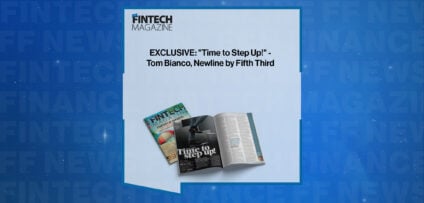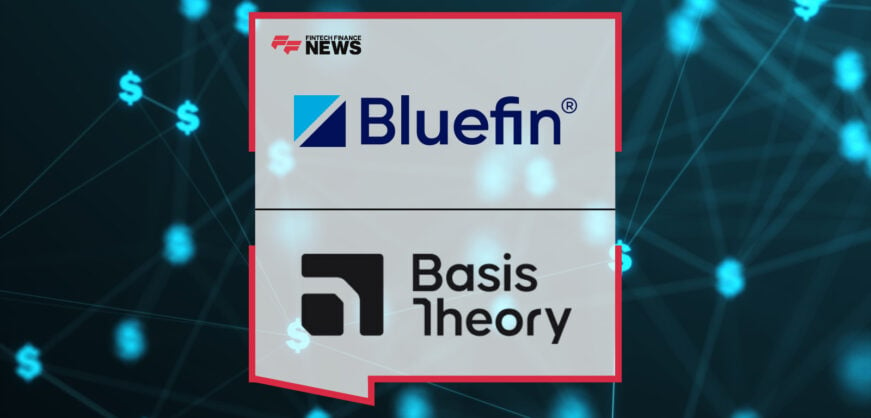Breaking News

EXCLUSIVE: “The Great Rebundling” – Shruti Patel, U.S. Bank in ‘The Fintech Magazine’
U.S. Bank is becoming a trusted resource of integrated back-office services for its 1.5 million small business customers, reversing a decade-long banking trend and addressing a real need
Much of the past decade’s digital progress in financial services has been achieved through the so-called ‘unbundling’ of banks, with non-banks satisfying customers’ fast-evolving service needs, by overriding the limitations of legacy systems and offering nimble – and often substantially cheaper – solutions.
It was perhaps inevitable that incumbents would seek to reinstate their proprietary advantage by ‘rebundling’ such services within their own estate – sometimes even subsuming the competitors through buy-outs/buy-ins or partnerships to do it. One of the most fought-over segments by fintechs has been small and medium-sized businesses (SMBs) who, for years, got a raw deal from banks. In the States, U.S. Bank is reversing that.
Many of its fellow banks have struggled to support SMBs due to the imbalance between cost-of-provision and revenue potential. But U.S. Bank is finding new ways to service this segment cost-effectively, utilising digital advances like artificial intelligence to its, and their, advantage.
For three years, the bank, which serves around 1.5 million such enterprises with up to $25million turnover in the States, has sought SMB owners’ views via its annual small business survey. Its most recent results, gathered just as new economic and trade policy was being introduced, were published this Spring.
Shruti Patel heads up U.S. Bank’s business banking arm and says respondents’ calls for help to future-proof their businesses through tech and ensure growth amidst significant macroeconomic stressors, have been getting louder. The bank is using that feedback to directly inform its technology strategy. It’s giving SMBs access to tools to help run their back-office functions more efficiently. By engaging in integrations, acquisitions and partnerships with fintechs it’s helping them up their game in light of the new economic playbook. That includes everything from new products and technologies to enhanced support from its frontline sales team, offering both hardware solutions and plug-in functionality that businesses can access via a single U.S. Bank online banking hub.
Patel says: “We’ve certainly seen an increasing reliance on digital tools over the past decade. This year’s survey showed a 15 percentage point jump from last year in terms of how much small businesses are relying on digital tools to run their back office, whether for workflow automation or cash flow management.
“More than 50 per cent of our respondents told us they are already using and deploying genAI tools, or plan to do so, over the next 12 months. Most of these businesses are using budget-friendly genAI solutions with a cost of less than $50 per month for uses that include content and marketing strategies, and back office efficiency.”
But they need help navigating the right path – and who better than banks like this one, with its longstanding legacy of trust, to do that?
“Most of our small business owners wear multiple hats. They are running their operations, focussed on consumer spending, bringing production costs down and bottom-line profitability up. So, they are struggling to keep pace with how quickly genAI technology is changing, in terms of learning about it and deploying it,” says Patel. “Our survey has shown small business owners are increasingly overwhelmed by the number of software solutions now in the marketplace. It’s almost mental gymnastics to calculate the cost and how these solutions come together, so they’re relying more and more on their banks to provide integrated products across banking, payments and software.
“Small business owners are overwhelmed by the number of software solutions in the marketplace… so they’re relying on their banks to provide integrated products”
“Our more notable investments include embedded payroll and accounts payables and receivables, as well as spend management capabilities. We’re trying to bundle these and bring them to market as one holistic solution for our small businesses.”
So, by focussing on their pain points, U.S. Bank is positioning itself as a transformation gateway.
“We are taking a multifaceted approach,” says Patel. “We want to continue to invest in our own infrastructure, data layers, and the technology systems needed to deploy genAI at scale and with speed.
“In parallel, we are looking at use cases across the bank, such as smart assistants to help our bankers with product recommendations, as well as small business-facing tools to help them navigate our software solutions more seamlessly.
“We’re also using genAI to help our customer services support teams utilise data transcription and synthesisation when someone calls us, to increase our response speed and efficiency.”
The bank’s Connected Partnership Network support platform is building out a marketplace of solutions from partners, including cash management and treasury solution providers, who integrate with U.S. Bank APIs. Similarly, businesses can see which platforms are certified to easily plug into Elavon, U.S. Bank’s merchant processing business which also operates in Europe. Elavon is a searchable, digital platform designed to help businesses find integrated software and payment solutions compatible with Elavon’s payment processing services.
Meanwhile, the bank’s free Business Resources Central support hub, created with the help of small business training and solutions provider Next Street, complements the technology with educational courses on topics such as accessing capital, business continuity planning and how to prepare to seek financing.
“We also recently launched our Business Essentials, best-in-class premium checking account coupled with merchant and payment acceptance capabilities,” says Patel. “It’s a no-monthly-maintenance-fee account offering SMBs unlimited digital transactions.
“When they sign up for our payments capabilities, we also give them a free card reader, fraud prevention tools, with same-day availability of funds, and the ability to integrate a business’s accounting and budget management software
“And all this is within a simple application and single onboarding event.”
Bento, added to U.S. Bank’s suite in 2021, completes the circle by pairing this payments capability with banking services like spend tracking and card transaction controls, using its accounts receivable software solutions to help SMBs track and control spend.
“We’re investing in our online digital capabilities, making our app seamless for money movement and electronic transfers as well as improving our online banking offering, as this is still the primary way that a lot of small businesses transact,” says Patel.
The Connected Partnership Network of fintech services facilitates such innovations, and it continues to grow as U.S. Bank collaborates with hundreds of fintechs every year.
Upbeat and determined
Patel describes the overall mood among business owners participating in its latest survey, as being relatively upbeat. But, above all, they are determined. They recognise the need to remain fighting fit – with technology being a key enabler, she says.
“Small businesses have viewed their businesses as very successful over the last 12 months, and, generally speaking, are optimistic that future growth will remain strong. However… macro-environment challenges such as tariffs were very top of mind [in the survey], followed by access to working capital and inflation increasing cost to their businesses. There were also concerns around consumer spending and whether that will remain strong.”
The report acknowledges that this adds up to a ‘pivotal moment for small business owners, who are navigating a rapidly evolving landscape’. They are responding to these by focussing on ‘streamlining operations, adopting new technologies, and making deliberate decisions about the future’, it said.
Eighty-three per cent said that using modern tools and technologies is a major success factor, while a similar number said they need more innovative tools to make their job easier and/or they were consolidating their digital tools to streamline their workflows.
In this context, there is clearly a prime opportunity for banks to claim space as most trusted suppliers of key services, embedded into SMBs’ accounts. U.S. Bank is helping lead the way on a ‘great rebundling’ of services that had been lost to fintech players. And Patel makes it clear it intends to stay right out front of that.
“We’ve always kept a keen eye on the marketplace to see who’s doing a fantastic job with new innovations,” she says. “And so, as we think about some of the needs of our small business owners, whether this is embedded payroll, embedded accounts, payables, or receivable solutions, we’re going to continue to look at partnerships with fintechs.”
This article was published in The Fintech Magazine Issue #36, Page 10-11
People In This Post
Companies In This Post
- Bluefin and Basis Theory Partner to Enable Unified Tokenization Across Digital and In-Person Payments Read more
- Invest Bank and AUTON8 Build Partnership to Drive Digital Resilience and Banking Agility Read more
- ING’s AI Roadmap: Platform, People, and Agentic AI Read more
- UK-fintech Provided Over £17.5m in Emergency Wage Advances to More Than 55,000 Employees in the Last Year Read more
- TreviPay Announces AI-Powered Growth Center to Help Enterprises Predict Buyer Behavior and Drive B2B Sales Read more


















